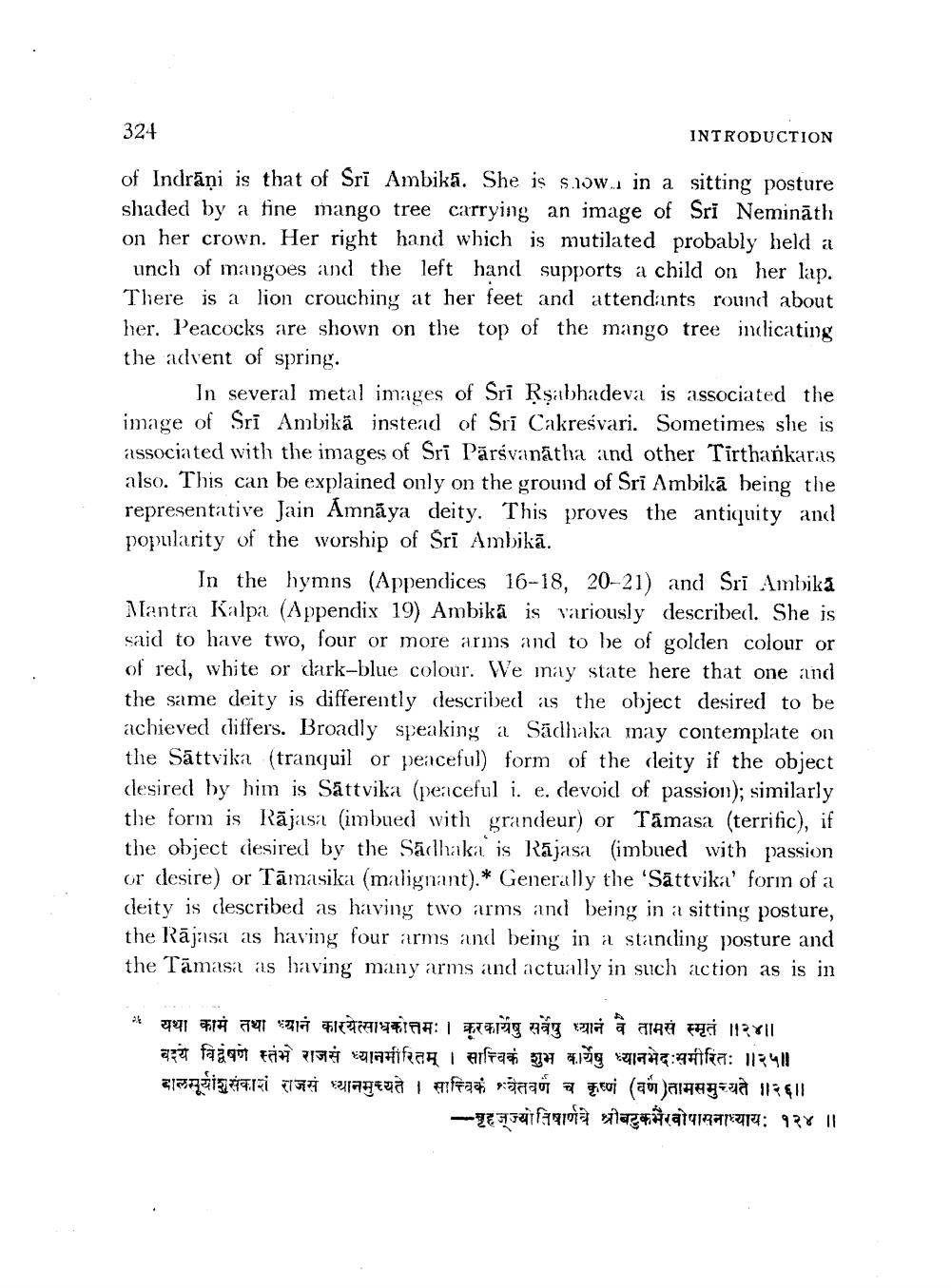________________
324
INTRODUCTION
of Indrāni is that of Sri Ambiká. She is slow... in a sitting posture shaded by a fine mango tree carrying an image of Sri Nemināth on her crown. Her right hand which is mutilated probably held a unch of mangoes and the left hand supports a child on her lap. There is a lion crouching at her feet and attendants round about her. Peacocks are shown on the top of the mango tree indicating the advent of spring.
In several metal images of Sri Rsabhadeva is associated the image of Sri Ambikä instead of Sri Cakreśvari. Sometimes she is associated with the images of Sri Pārsvanātha and other Tirthankaras also. This can be explained only on the ground of Sri Ambikā being the representative Jain Amnāya deity. This proves the antiquity and popularity of the worship of Sri Ambikā.
In the hymns (Appendices 16-18, 20-21) and Sri Ambika Mantra Kalpa (Appendix 19) Ambikā is variously described. She is said to have two, four or more arms and to be of golden colour or of red, white or dark-blue colour. We may state here that one and the same deity is differently described as the object desired to be achieved differs. Broadly speaking a Sadhaka may contemplate on the Sättvika (tranquil or peaceful) form of the deity if the object desired by him is Sattvika (peaceful i. e, devoid of passion); similarly the form is Rūjasa (imbued with grandeur) or Tāmasa (terrific), if the object desired by the Sadhaka is Rajasa (imbued with passion or desire) or Tāmasika (malignant).* Generally the 'Sāttvika' forin of a deity is described as having two arms and being in a sitting posture, the Rājasa as having four arms and being in a standing posture and the Tāması as having many arms and actually in such action as is in
५ यथा कामं तथा ध्यानं कारयेत्साधकोत्तमः । करकार्येषु सर्वेषु ध्यानं वै तामसं स्मृतं ॥२४॥
वदय विद्वेषणे स्तंभे राजसं ध्यानीरितम । सात्त्विक शुभ कार्येषु ध्यानभेद:समीरितः ॥२५॥ बालसूर्याशुसंवा राजसं ध्यानमुच्यते । सात्त्विकं वेतवण च कृष्णं (वर्ण तामसमुच्यते ॥२६॥
-मृहज्योतिषार्णवे श्रीबटुकभैरवोपासनाध्यायः १२४ ।।




